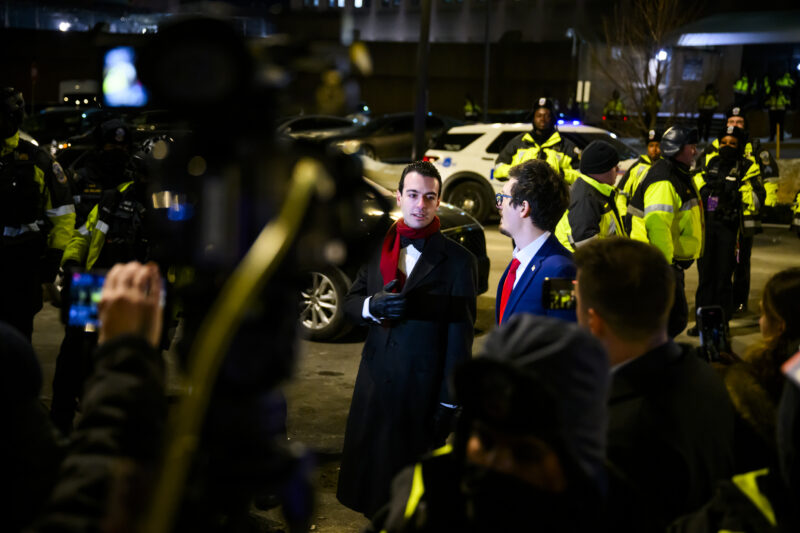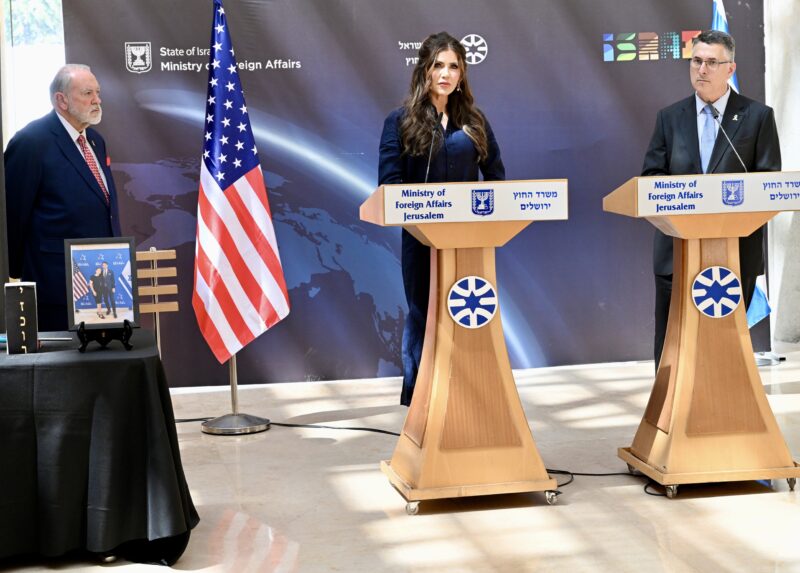49 Senate Democrats join amendment affirming support for two-state solution
The legislation represents an effective rebuke of Israeli Prime Minister Benjamin Netanyahu’s recent comments rejecting a two-state solution

Anna Moneymaker/Getty Images
Sen. Brian Schatz (D-HI) leaves a meeting with Senate Democrats at the U.S. Capitol Building following passage in the House of a 45-day continuing resolution on September 30, 2023 in Washington, DC.
Nearly every Senate Democrat joined legislation from Sen. Brian Schatz (D-HI) affirming that it is U.S. policy to support a negotiated two-state solution.
The legislation, which will be formally introduced as an amendment to the supplemental aid bill for Israel and other U.S. allies, is largely a messaging matter; Schatz told reporters he does not plan to seek a vote on it as part of the supplemental deliberations — although he may push for a vote on the language as a standalone resolution at a later date.
But its timing represents an effective rebuke of Israeli Prime Minister Benjamin Netanyahu’s recent comments rejecting a two-state solution. The only Democrats who did not join the legislation are Sens. John Fetterman (D-PA) and Joe Manchin (D-WV).
Schatz told reporters that the amendment had been in the works before Oct. 7 as standalone legislation, and as a supplemental amendment before Netanyahu’s comments, but said lawmakers had “accelerated” and “turbocharged” the work, to “clarify that this remains the position of the United States Congress.”
Manchin told JI he didn’t sign on due to concerns about the current Palestinian leadership.
“Once a Palestinian government with its peoples’ best interests at heart agrees that Israel should be a state, I will be the first one to sign on to a bipartisan amendment supporting that Israel recognize a Palestinian state,” Manchin said.
A spokesperson for Fetterman told Business Insider that the senator supports a two-state solution but “strongly believes that this resolution should include language stipulating the destruction of Hamas as a precondition to peace.”
The language in the legislation endorses a negotiated solution “resulting in two states with Israelis and Palestinians living side by side in peace, security, dignity, and mutual recognition” which “must ensure the state of Israel’s survival as a secure, democratic, and Jewish state, and fulfill the legitimate aspirations of the Palestinian people for a state of their own.”
Schatz said that the language is intentionally broad, and that the specific details of how a two-state solution should work must be negotiated among the parties. The purpose of this amendment was “leaving the door ajar for a two-state solution,” Schatz explained.
And while Schatz supports another amendment that conditions emergency aid on Israel’s compliance with U.S. humanitarian efforts and imposes other oversight mechanisms, he said he didn’t think it would be appropriate to attempt to “dictate the future of [Israel’s relationship] with the PA or with the Palestinian people” in a similar way.
“This is going to take a lot of doing over many months and possibly years,” he said. “So I just don’t think it’s realistic, and I think it would likely backfire if we started to try to dictate terms” of a two-state solution.
While no Republicans — who have grown increasingly wary of a two-state solution in recent years — signed onto the legislation, Schatz said that he’s having “very good conversations” with GOP colleagues about the measure.
“It is still the case that the two-state solution remains bipartisan. I think they [Republicans] have more caveats to it,” Schatz said. “I think they’re very concerned right now with the reform of the [Palestinian Authority] if that becomes the future governing structure.”

































